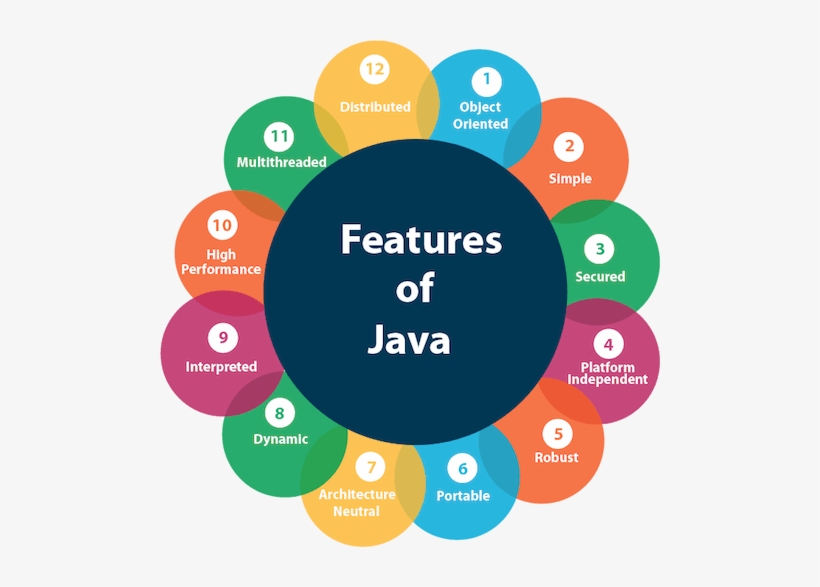Features of Java
Java is a versatile and widely-used programming language known for its features and capabilities. Here are some of the key features of Java:

Object-Oriented Programming (OOP):
Java is a pure object-oriented programming language. It emphasizes the use of classes and objects to model real-world entities and their interactions.
OOP concepts like encapsulation, inheritance, and polymorphism are fully supported in Java.
Secured:
It has built-in security features, such as the Java Security Manager, which restricts potentially harmful operations and ensures the safety of Java applications.
Automatic Memory Management (Garbage Collection):
Java uses automatic garbage collection to manage memory. This feature helps prevent memory leaks and simplifies memory management for developers.
Objects that are no longer referenced are automatically reclaimed by the garbage collector.
Platform Independence (Write Once, Run Anywhere):
Java is designed to be platform-independent. It achieves this through the use of bytecode, which allows Java programs to run on any platform with a compatible Java Virtual Machine (JVM).
This "Write Once, Run Anywhere" (WORA) capability makes Java suitable for cross-platform development.
Robust :
Java incorporates strong type checking and exception handling to ensure robustness.
Multi-Threaded and Concurrency Support:
Java provides built-in support for multithreading and concurrency. Developers can create and manage multiple threads to execute tasks concurrently.
The
java.util.concurrentpackage offers high-level concurrency utilities for synchronization and thread management.
Rich Standard Library (Java API):
Java includes a comprehensive standard library known as the Java API (Application Programming Interface). This library provides pre-built classes and packages for a wide range of tasks, such as I/O, networking, data structures, and more.
The Java API simplifies application development and reduces the need to reinvent common functionality.
Platform-Independent Networking and Distributed Computing:
Java supports networking and distributed computing through the
java.netpackage and technologies like RMI (Remote Method Invocation).Developers can create networked and distributed applications easily using Java.
Dynamic and Extensible:
Java supports dynamic class loading and reflection, allowing classes to be loaded and instantiated at runtime.
It supports the creation of extensible and modular applications through technologies like Java SE Modules.
High Performance:
While Java is often associated with interpreted bytecode, modern JVMs use Just-In-Time (JIT) compilation to convert bytecode into native machine code, providing competitive performance.
Large and Active Community:
Java has a large and active developer community, which means there are extensive resources, libraries, and frameworks available for Java development.
Community support ensures that Java remains a relevant and evolving language.
Backward Compatibility:
Java is committed to backward compatibility. This means that older Java applications continue to run on newer versions of the Java platform with minimal or no modifications.
Versatility:
Java can be used for a wide range of applications, including web development, mobile app development (Android), enterprise software, scientific computing, and more.
These features contribute to Java's popularity and make it a versatile language for a wide variety of application domains.
Last updated